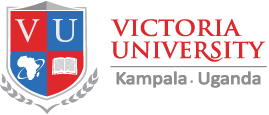Quick Facts
Credential
Certificate
Delivery Options:
Both On-Campus and Online - Some of your Classes will be in-person, on campus and some will be done online.
Duration: Two years
With a typical full-time course load, this programme will take Two years to complete.
Language of instruction
english
Admission Requirements
Admission/Entry requirements A candidate shall be eligible for admission to the National certificate in Cosmetology and Body therapy course on meeting any of the following minimum qualifications:
a) Ordinary Level Entry Scheme (Uganda Certificate of Education)
The candidate should be a holder of a Uganda Certificate of Education (UCE) OR its equivalent, without restrictions on the passes and year of sitting.
b) Certificate Entry Scheme
The candidate should hold a Junior Vocational Certificate (JVC), obtained from any recognised institution.
None
What you will Learn
Students enrolled in the National Certificate in Cosmetology and Body Therapy will study a variety of modules designed to provide both foundational knowledge and practical skills in cosmetology, body therapy, and entrepreneurship. The curriculum is structured to ensure that students gain competencies required for success in the industry. Here is an overview of the key modules that will be covered:
Core Technical Modules:
Hair Care and Design
Techniques and practices for maintaining and styling hair.
Chemical Hair Reformation
Study of chemical treatments for hair, including perming, relaxing, and straightening.
Fundamentals of Hairdressing
Basic skills in hairdressing, including washing, cutting, and styling techniques.
Basic Beauty Therapy
Introduction to facial treatments, skincare, makeup application, and other beauty treatments.
Hair Cutting and Barbering
Techniques for cutting different hair types and styles, as well as barbering methods.
Basic Hair Colouring
Application and techniques of hair coloring, highlighting, and tinting.
Real-Life Projects
Hands-on practical projects where students apply the skills learned to real-world scenarios.
Foundational Modules:
Computer Applications
Basic computing skills, including report writing, data entry, and software usage relevant to cosmetology businesses.
Basic Kiswahili
Language skills to enhance communication, especially for those intending to work in East Africa or with diverse clients.
Life Skills
Personal development, communication, and emotional intelligence to build professionalism and self-confidence.
Entrepreneurship Module:
Entrepreneurship Skills
Skills in starting, managing, and sustaining a business within the cosmetology industry, including financial management, marketing, and ethical business practices.
Industrial Training:
Workplace Experience (Industrial Training)
At the end of each academic year, students will participate in industrial training to bridge the gap between classroom-based learning and the world of work. This provides practical exposure in real salons or cosmetology-related businesses.
Additional Skills:
Hair Analysis
Techniques for assessing hair health and recommending appropriate treatments.
Hair Weaving and Plaiting
Practical skills in traditional and modern hair weaving and plaiting techniques.
The curriculum also emphasizes problem-solving, creativity, and client service, ensuring that graduates are equipped with both technical and soft skills to thrive in the cosmetology industry.
Career Opportunities
Main Job Titles and Tasks for NCCB graduates include the following:
Cosmetologist
Skin care and eye area treatments
Facial makeup
Manicure and Pedicure services
Hair dresser
Chemical hair services
Styling
Hair colouring
Weaving and plaiting
Hair cutting
Barbering
Hair pressing and blow drying
Shampooing, rinsing and conditioning
12
Beautician
Facial treatment
Facial makeup
Skin care
Manicure and Pedicure services
Nail care technician
Cut finger and toenails
Shape and polish nails
Gel nails
Nail repair
Nail fills
Artificial nail fix
Nail art
Shampooer
Select and apply shampoo
Rinse shampoo from hair
Apply hair conditioners
Barber
Cut and trim hair
Shampoo and style hair
Cut and trim beards and moustaches
Perform facial shavings
Perform scalp treatments
Cosmetic laboratory assistant
Take care of the lab equipment
Maintain record of bin cards
Organize laboratories/practical rooms
Set equipment
Store lab products
Guide learners in the laboratory
Salon Receptionist
Welcome clients
Clean the salon, tools and equipment
Manage salon stocks and equipment
Arrange and display salon items
Cosmetic shop Attendant
Sell Cosmetics
Educate and advise clients on Cosmetic products
Book keeping
Sales Representative
Promote products for cosmetic companies
Advertise cosmetic products for companies
Sell cosmetics
Skin care specialist
Demonstrates the product use
Analyse skin tone
Analyse cosmetic chemistry
Advise individuals on the cosmetic products to use
Cosmetics manufacturer
Manufacture Cosmetic like shampoo, conditioner and hair food
Research on cosmetic ingredients
Tuition & Fees
The tuition and fee amounts are estimates based on current academic year's rates. For financial planning purposes, please use these totals as an approximate estimate of your costs. Actual fees may vary by term and enrolment activities.
Download
